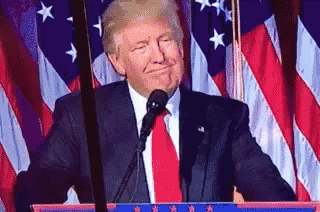The Law Will Be on Trump’s Side If He Declares an Emergency to Fund His Wall
For all the legal analysts wringing their hands at the prospect of such a move, the courts would likely uphold it.
It seems increasingly likely that President Trump will declare a national emergency at our southern border in order to access funds to build a wall. Last week, I had the pleasure of debating National Review’s very own David French on the legality of such a move in a Federalist Society-sponsored tele-conference. I wanted to take the opportunity to further explain my defense of Trump’s legal authority in response to David’s excellent points.
David and I agree that Congress has not placed any serious limits on the president’s power to declare an emergency and that the Supreme Court was unlikely to second-guess him. For much of our history, presidents have understood the Constitution’s grant of “the executive power” to include a power to declare national emergency. Thomas Jefferson effectively did so in response to Aaron Burr’s effort to raise a rebellion in Louisiana; Abraham Lincoln did so, with far more justification, at the start of the Civil War; FDR did so, with far less justification, at the start of his presidency in response to the Great Depression; and Harry Truman did so at the start of the Korean War.
In 1976, Congress enacted the National Emergency Act in its burst of post-Watergate reforms designed to restrict presidential power. While the new law terminated most existing emergencies, it did not set out any definition of a national emergency or limit the president’s ability to declare one. The law only sets out the process for publication and congressional notification of the president’s declaration. So David and I agree that there are few limits on the president’s ability to declare an emergency for good reason. Indeed, every president since 1976 has used the NEA to declare a national emergency, several under circumstances far less immediate than this one, and the Supreme Court has never overturned one.
But David and I disagree on a broad conceptual question. I think he, and other prominent critics, view Trump’s apparently impending declaration through the lens of Youngstown Sheet & Tube Co. v. Sawyer (1952). In Youngstown, the Supreme Court reversed President Truman’s seizure of the nation’s steel mills, which a broad labor strike had closed. President Truman argued that steel was critical to the production of armaments needed for the Korean War. Writing for a 6–3 majority, Justice Hugo Black concluded that taking possession of private property — here, the steel mills — was a legislative function of government vested in Congress, not the president. Since Congress had rejected amendments to the federal labor laws that would have granted the executive such a power, Black concluded, Truman was without constitutional or statutory authority to seize the mills. According to David, a Trump declaration of emergency would amount to a similar act without legal authority.
I believe, however, that Youngstown is not the right analogy to the present circumstances. Trump does not claim that he has an inherent presidential power to declare an emergency and build a wall. Even if he did, I think that there would be important differences between Truman’s seizure of the steel mills and a wall. Here, unlike Youngstown, there is no direct conflict between Congress and the President. Congress has not passed a law denying the President the authority to take measures to protect the border; in fact, in 2006 Congress passed a law by bipartisan majorities authorizing the construction of a wall. In Dames & Moore v. Regan (1981), the Court found that when Congress broadly delegates a general power to the executive branch in the area of foreign affairs, such as the power to impose economic sanctions, it would not read Congress’s neglect to grant a more specific, related authority as foreclosing the president from exercising that authority. Instead, it would treat Congress’s silence as acquiescence to presidential initiative, especially in times of emergency. That is exactly the case here: Congress has authorized a wall and other security measures at the border, it has not passed any law forbidding such a wall, and the president has invoked delegated powers to continue the wall’s construction.
Read the rest from John Yoo HERE.







Comments are closed.